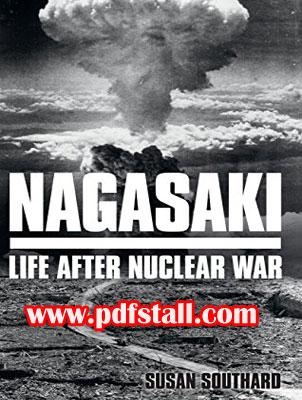
Book Title: Nagasaki Life After Nuclear War
Author(s): Susan Southard
Category: History
Publisher: Souvenir Press Ltd, Year: 2015
ISBN: 0285643274, 9780285643277
Description:
A Washington Post Best Book of the Year
An Economist Best Book of the Year
“A poignant and complex picture of the second atomic bomb’s enduring physical and psychological tolls. Eyewitness accounts are visceral and haunting. . . . But the book’s biggest achievement is its treatment of the aftershocks in the decades since 1945.” —The New Yorker
A powerful and unflinching account of the enduring impact of nuclear war is told through the stories of those who survived.
On August 9, 1945, three days after the atomic bombing of Hiroshima, the United States dropped a second atomic bomb on Nagasaki, a small port city on Japan’s southernmost island. An estimated 74,000 people died within the first five months, and another 75,000 were injured.
Published on the seventieth anniversary of the bombing, Nagasaki takes readers from the morning of the bombing to the city today, telling the first-hand experiences of five survivors, all of whom were teenagers at the time of the devastation. Susan Southard has spent years interviewing hibakusha (“bomb-affected people”) and researching the physical, emotional, and social challenges of post-atomic life. She weaves together dramatic eyewitness accounts with searing analysis of the policies of censorship and denial that colored much of what was reported about the bombing both in the United States and Japan.
Nagasaki life after nuclear war
On August 9th, 1945, three days after the atomic bombing of Hiroshima, a 5-tonne plutonium bomb was dropped on the small, coastal city of Nagasaki. The explosion destroyed factories, shops, and homes and killed 74,000 people while injuring another 75,000. The two atomic bombs marked the end of a global war but for the tens of thousands of survivors, it was the beginning of a new life marked with the stigma of being hibakusha (atomic bomb-affected people).
Nagasaki Life After Nuclear War
Susan Southard has spent a decade interviewing and researching the lives of the hibakusha, raw, emotive eye-witness accounts, which reconstruct the days, months, and years after the bombing, the isolation of their hospitalization and recovery, the difficulty of re-entering daily life, and the enduring impact of life as the only people in history who have lived through a nuclear attack and its aftermath. Following five teenage survivors from 1945 to the present day Southard unveils the lives they have led, their injuries in the annihilation of the bomb, the dozens of radiation-related cancers and illnesses they have suffered, the humiliating and frightening choices about marriage they were forced into as a result of their fears of the genetic diseases that may be passed through their families for generations to come.
Nagasaki Life After Nuclear WarThe power of Nagasaki lies in the detail of the survivor”??s stories, as deaths continued for decades because of the radiation contamination, which caused various forms of cancer. Intimate and compassionate, while being grounded in historical research Nagasaki reveals the censorship that kept the suffering endured by the hibakusha hidden around the world. For years after the bombings news reports and scientific research were censored by U.S. occupation forces and the U.S. government-led and efficient campaign to justify the necessity and morality of dropping the bombs. As we pass the seventieth anniversary of the only atomic bomb attacks in history Susan Southard captures the full range of pain, fear, bravery, and compassion unleashed by the destruction of a city. The personal stories of those who survived beneath the mushroom clouds will transform the abstract perception of nuclear war into a visceral human experience. Nagasaki tells the neglected story of life after the nuclear war and will help shape public discussion and debate over one of the most controversial wartime acts in history. Nagasaki Life After Nuclear War.
A gripping narrative of human resilience, Nagasaki will help shape public discussion and debate over one of the most controversial wartime acts in history.Nagasaki Life After Nuclear War.